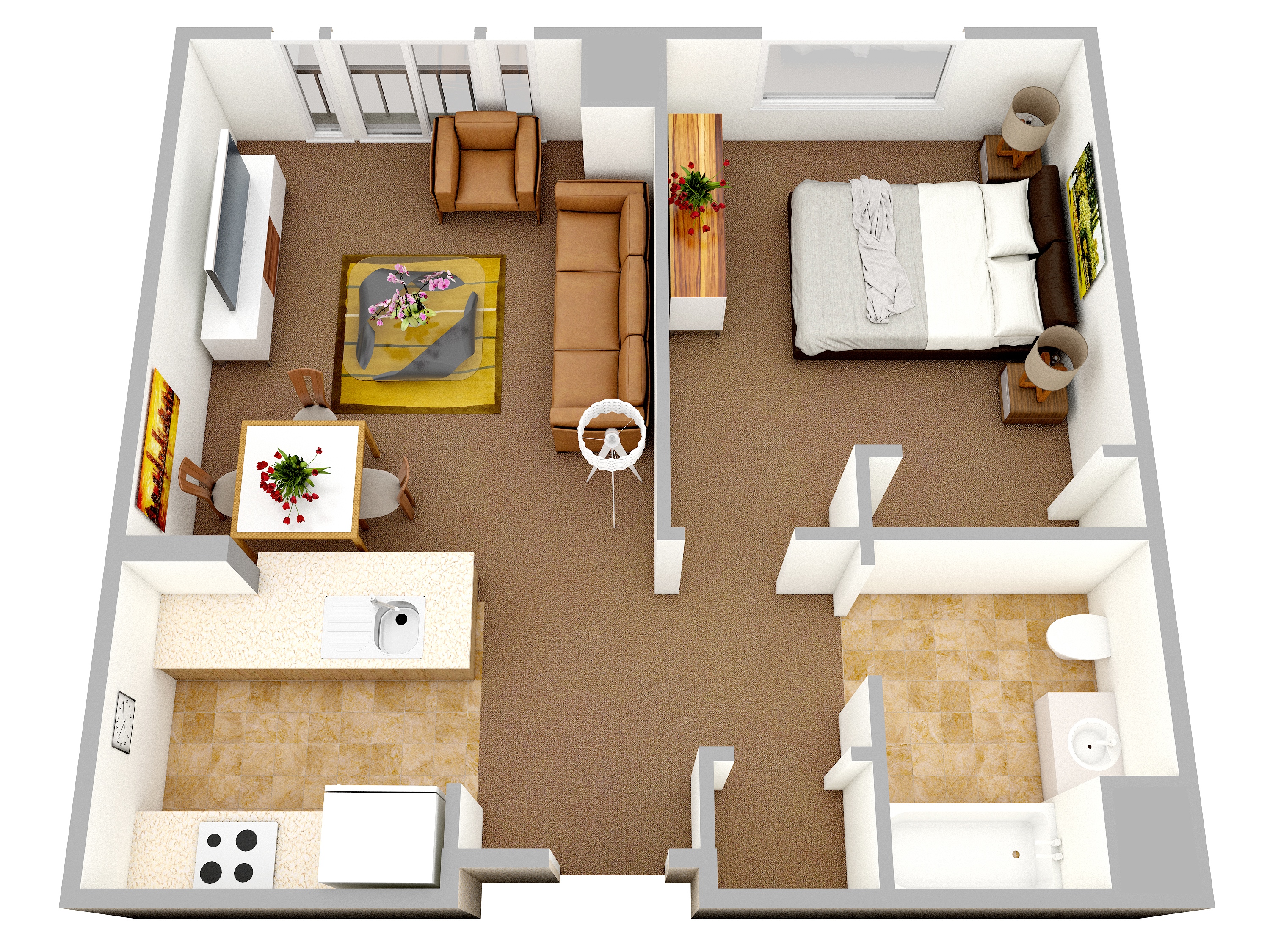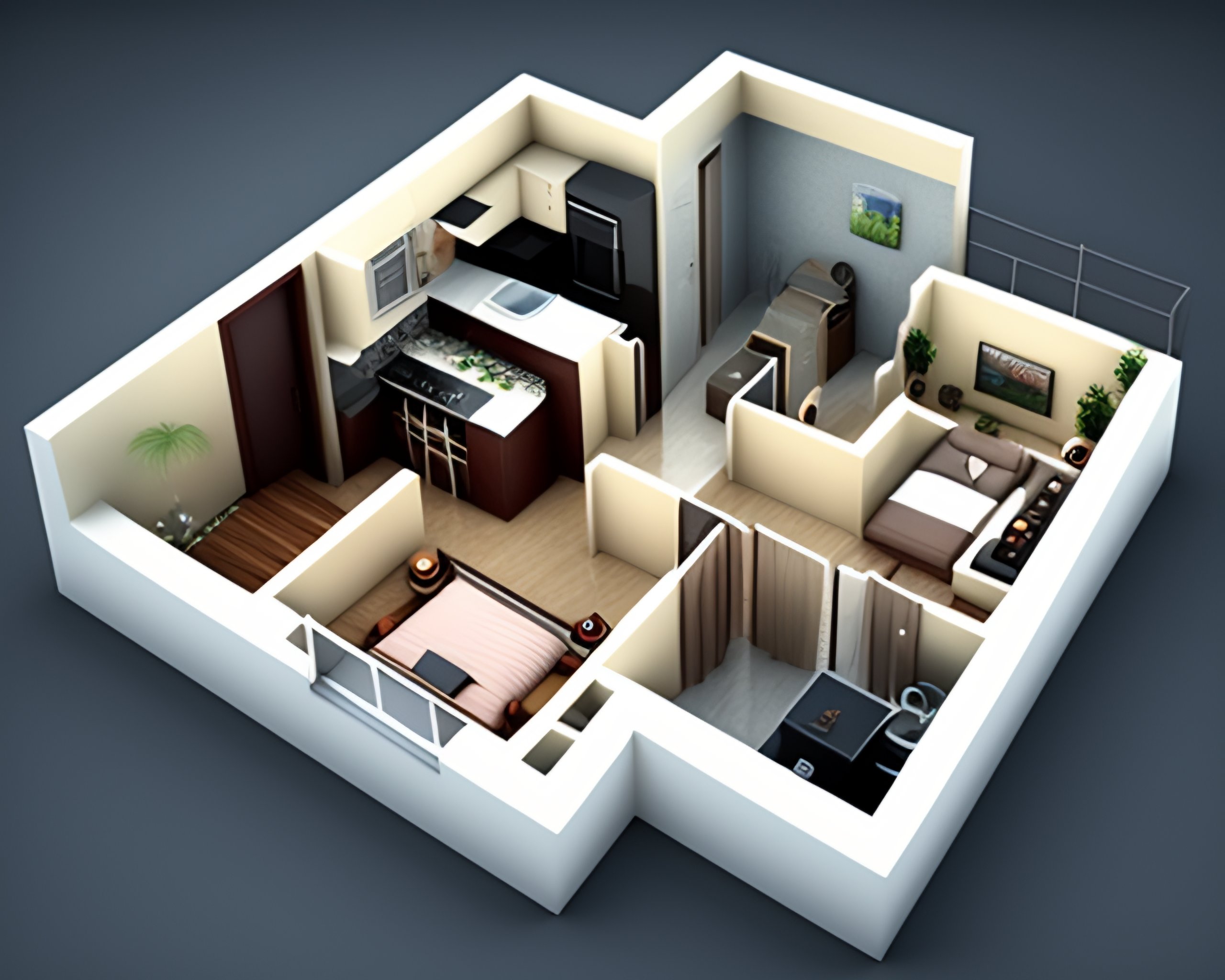Small Apartment Architecture Plan

Introduction

In today’s urban environments, small apartments are becoming increasingly popular due to space constraints and rising living costs. Designing a small apartment requires careful planning and innovative solutions to maximize space and create a comfortable and functional living environment. This article presents an architecture plan for a small apartment, showcasing design strategies and space-saving ideas.
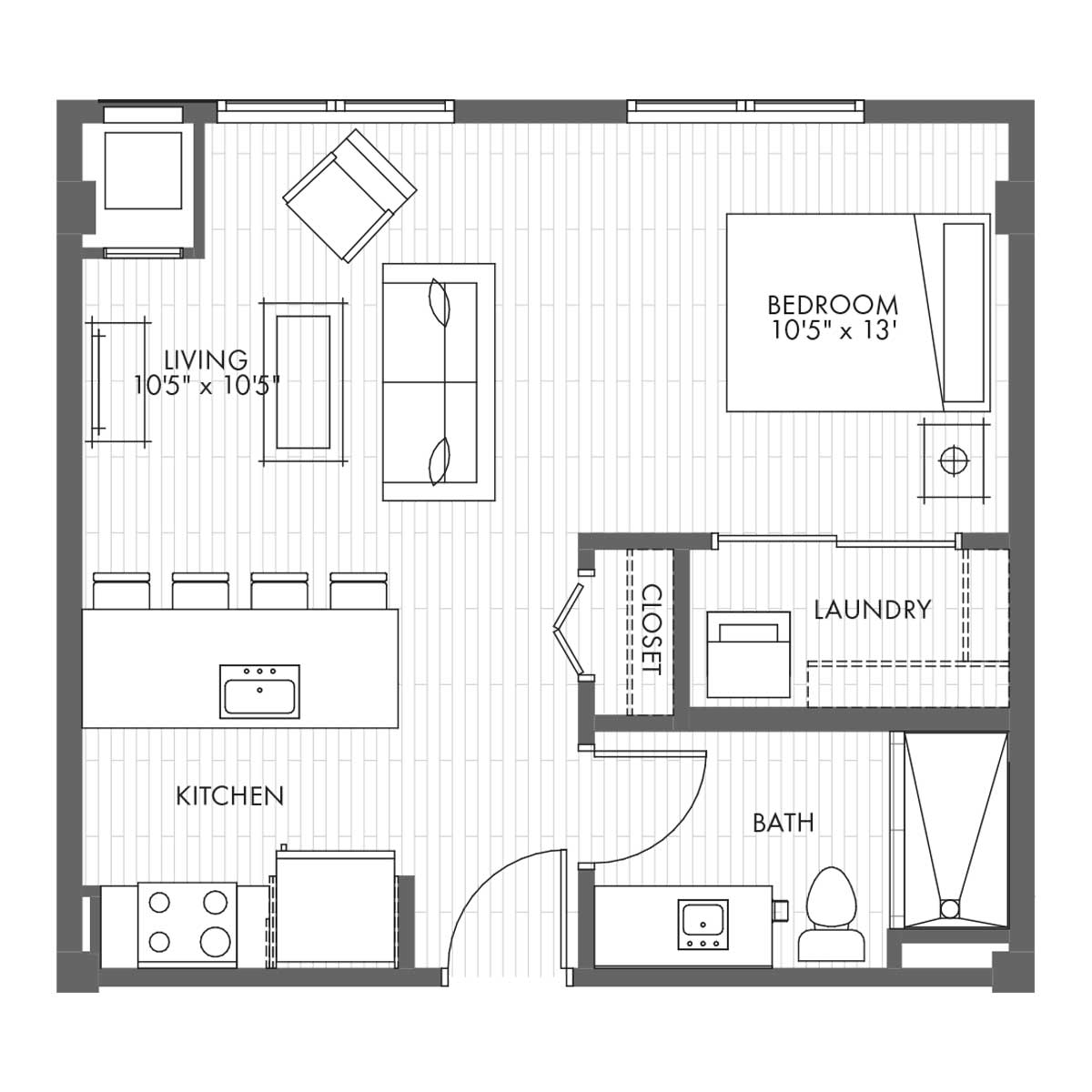
Floor Plan

The floor plan of a small apartment should be optimized for efficient space utilization. An open-plan layout is often preferred, as it creates a sense of spaciousness and allows for multiple functions within a single room. The living room, dining area, and kitchen can be combined into one open space, with designated areas for each activity.
Vertical Space Utilization

To maximize vertical space, consider incorporating lofts, mezzanines, and built-in storage. Lofts can provide additional sleeping or storage space, while mezzanines can create separate areas for work or relaxation. Built-in storage, such as shelves, cabinets, and drawers, can be integrated into walls and furniture to utilize vertical space effectively.
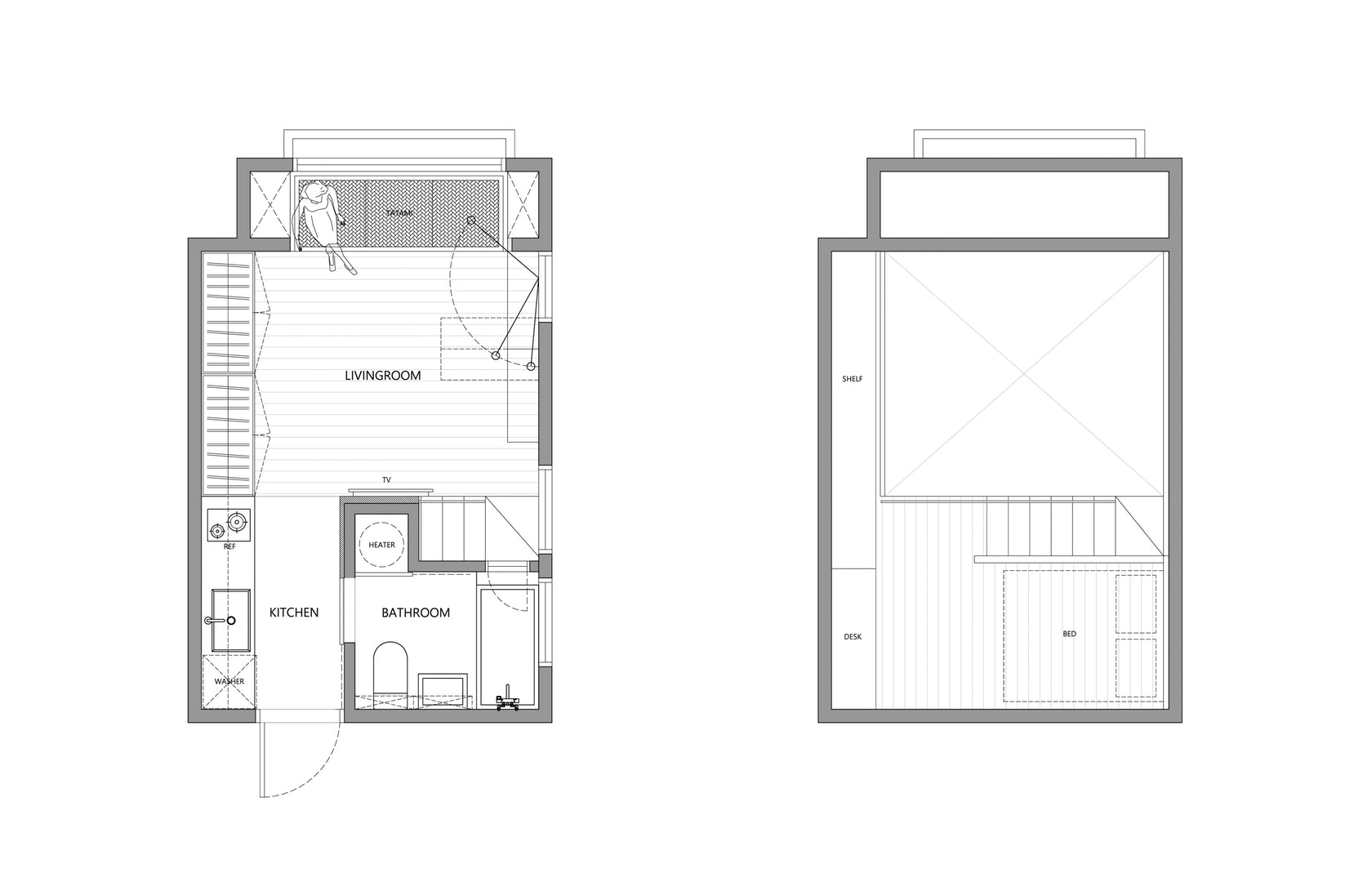
Multi-Functional Furniture

Multi-functional furniture is essential for small apartments. Choose pieces that serve multiple purposes, such as a sofa bed that converts into a sleeping area, or a coffee table with built-in storage. Ottomans can double as seating and storage, while foldable chairs and tables can be easily stored away when not in use.
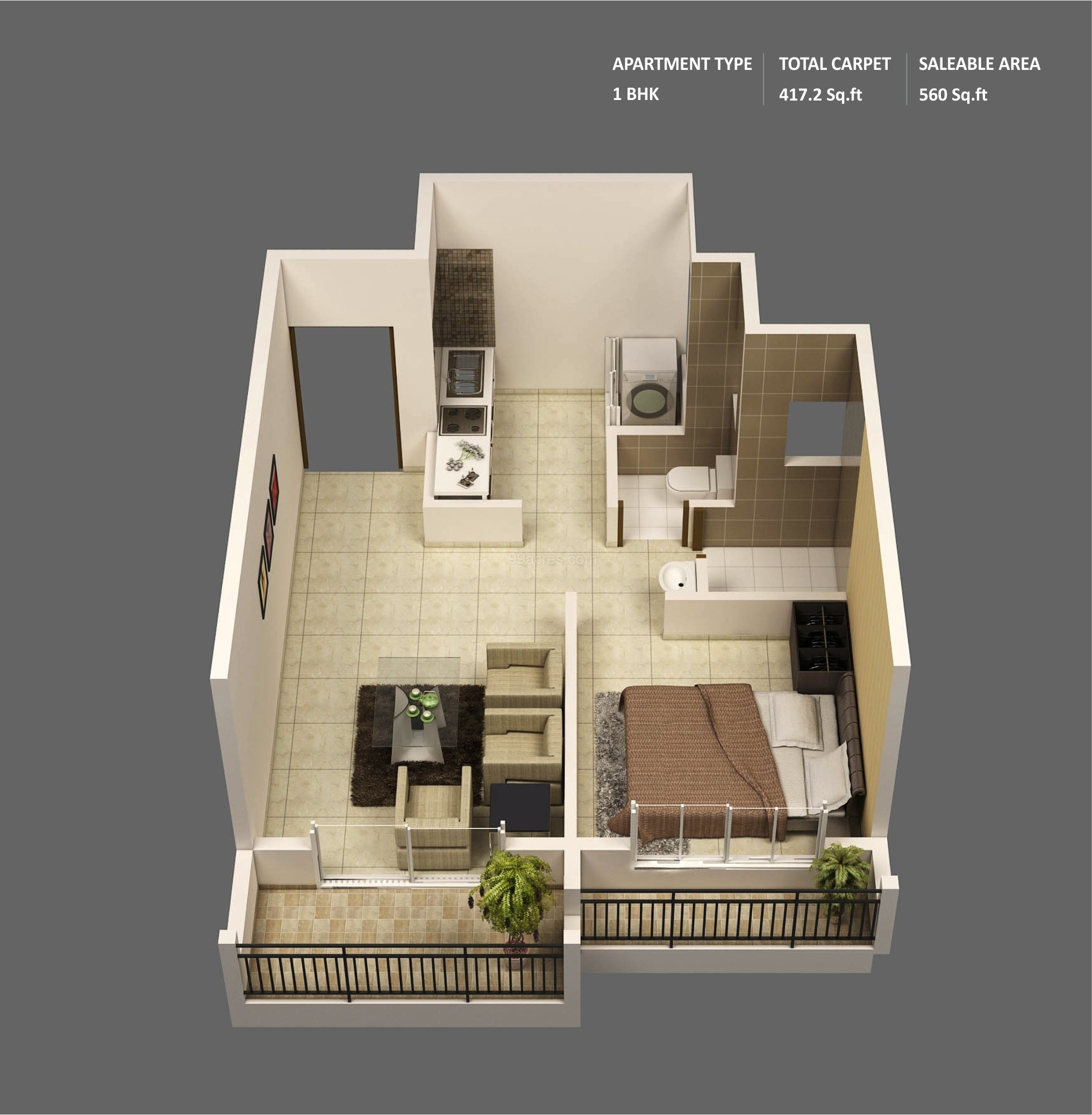
Natural Light and Ventilation
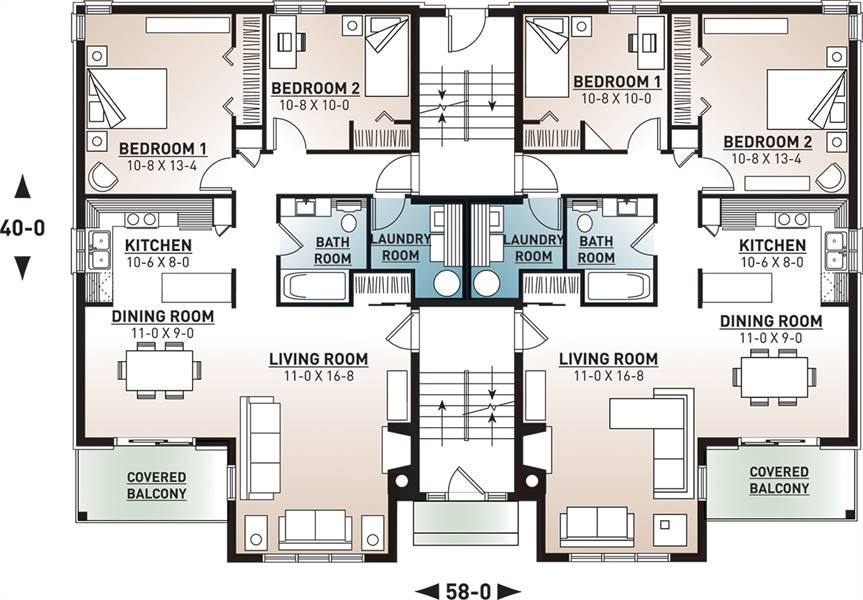
Natural light and ventilation are crucial for creating a comfortable and healthy living environment. Large windows and skylights can bring in ample daylight, reducing the need for artificial lighting. Cross-ventilation can be achieved by placing windows on opposite sides of the apartment, allowing for natural airflow and reducing the need for air conditioning.

Storage Solutions

Storage is a key consideration in small apartments. Utilize every available space for storage, including under-bed drawers, wall-mounted shelves, and vertical organizers. Consider using clear containers or bins to keep items organized and easily accessible.
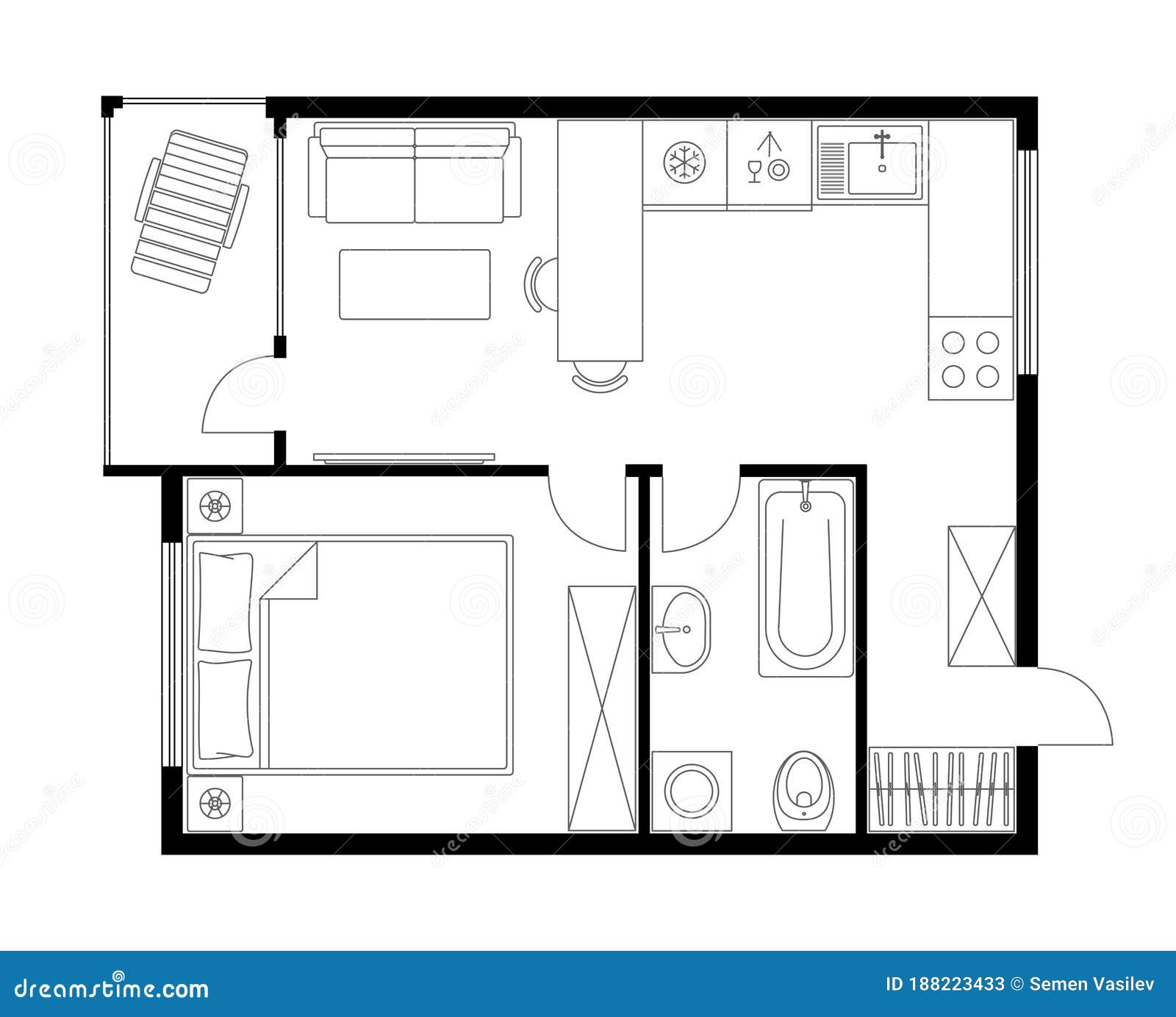
Materials and Finishes
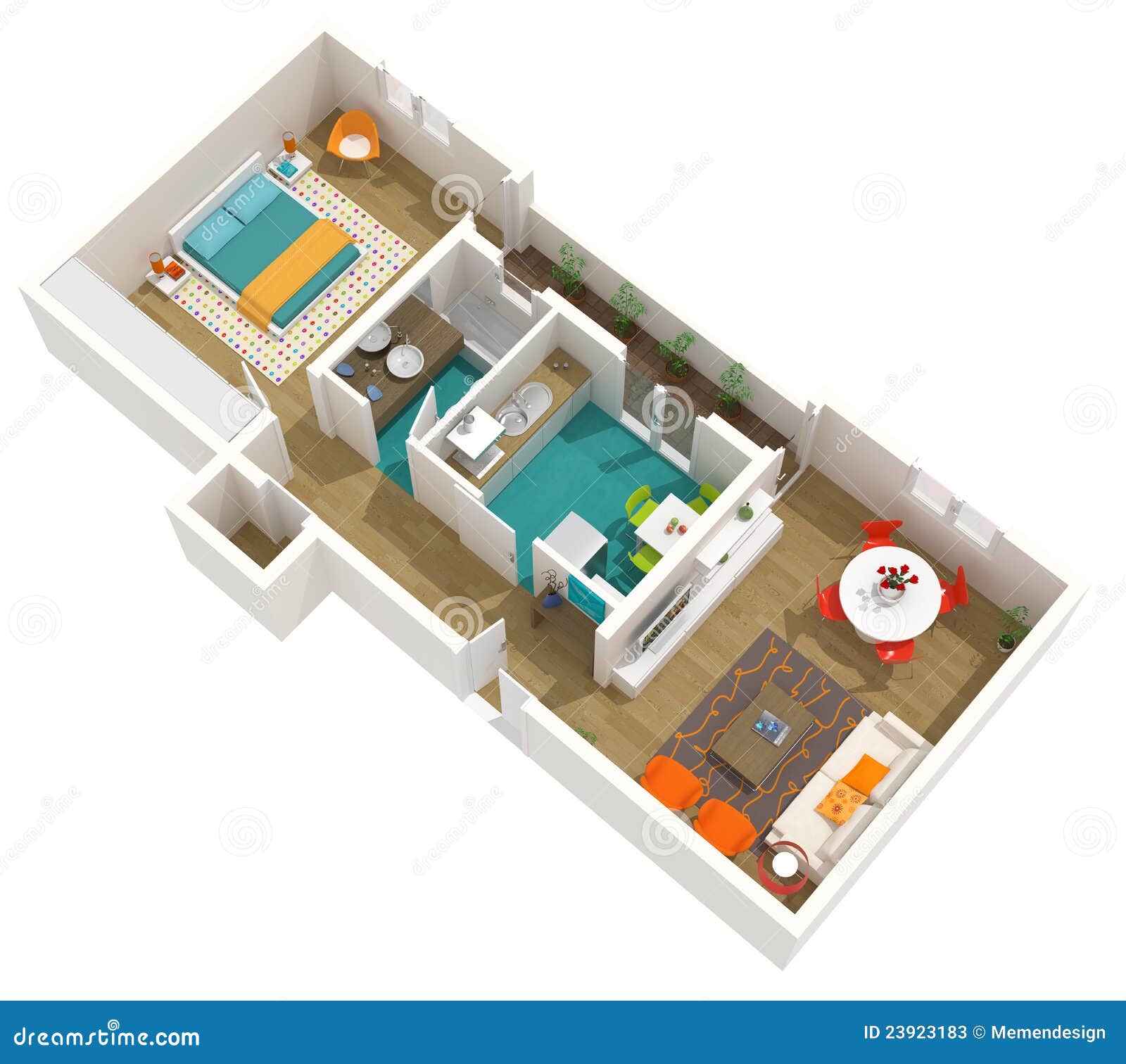
Choose materials and finishes that enhance the sense of space. Light-colored walls and floors reflect light, making the apartment appear larger. Mirrors can also be strategically placed to create the illusion of depth. Avoid using heavy curtains or bulky furniture, as they can make the space feel cramped.

Conclusion

Designing a small apartment requires a creative and space-conscious approach. By incorporating vertical space utilization, multi-functional furniture, natural light and ventilation, and clever storage solutions, architects can create comfortable and functional living environments that maximize space and enhance well-being.

